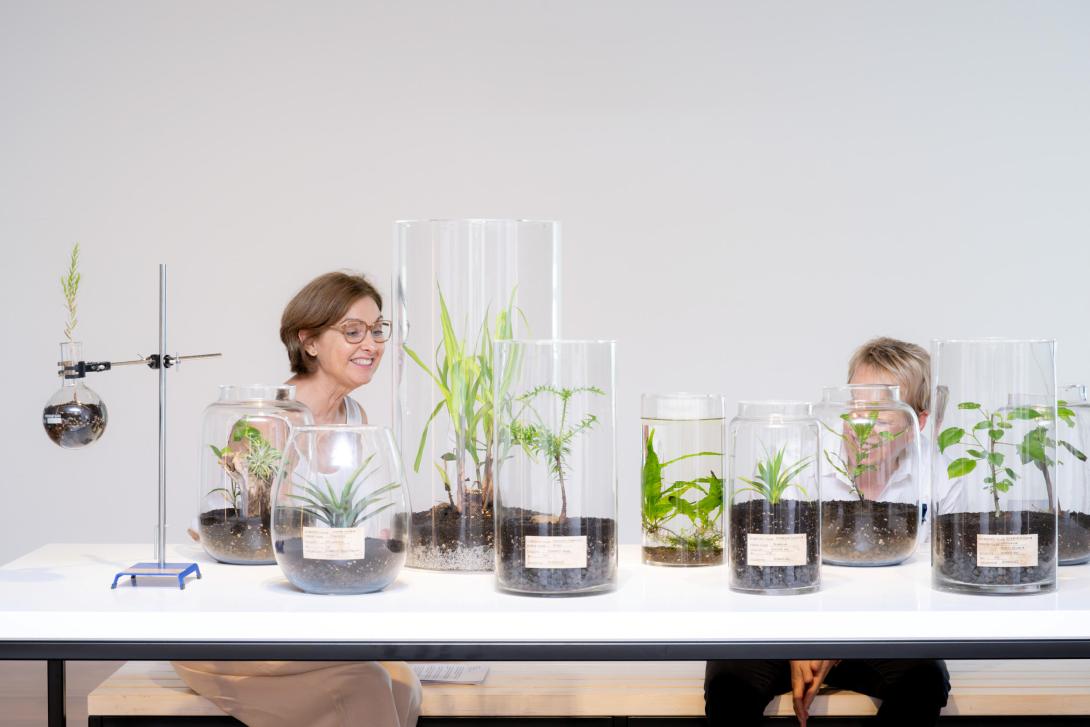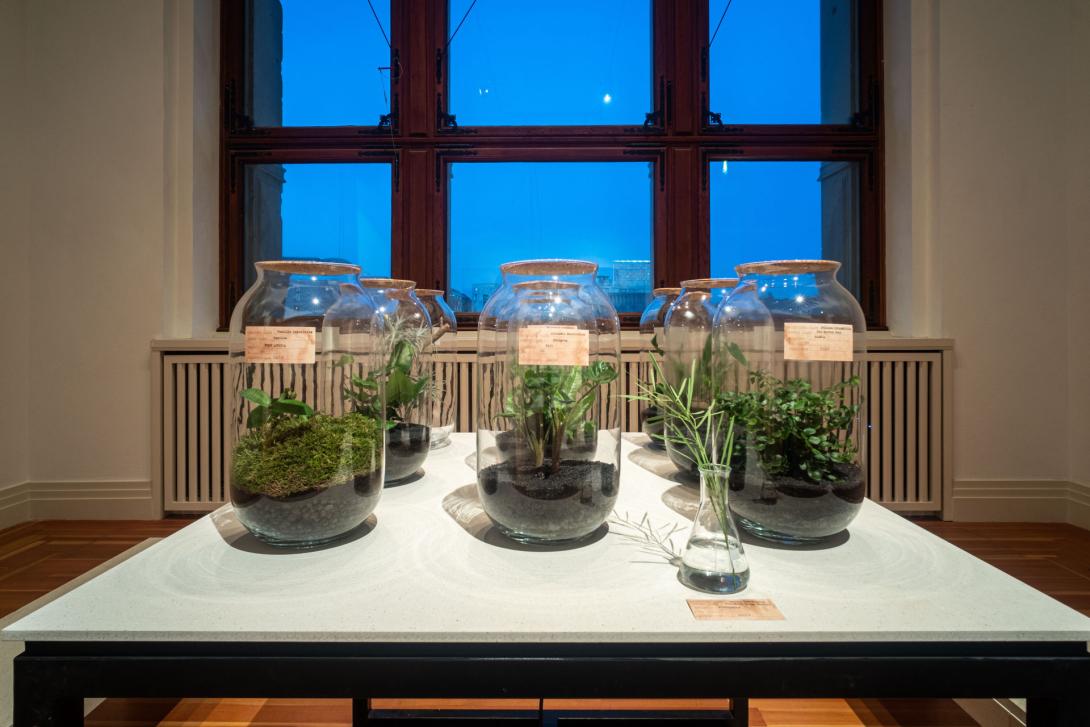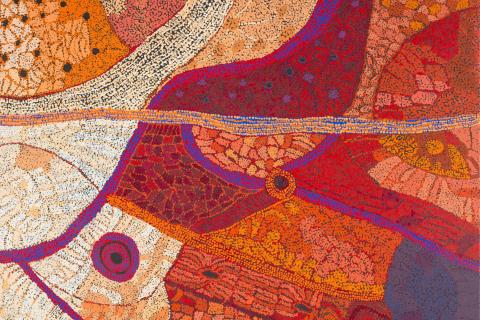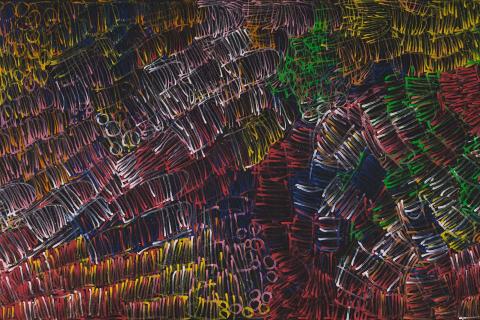WORK ON LOAN: ‘Seeds and Sovereignty’
Libby Harward
Ngugi people of Mulgumpin (Moreton Island)
Australia QLD b.1976
Ngali Gabili (We Tell) 2024
Living plants, soil, glass terrarium and digital sound file
Courtesy: The artist
Ngali Gabili (We Tell) 2024 is a site-specific installation of living plant specimens enclosed in glass vessels that respond to the Wardian case — a mid-nineteenth-century predecessor of the terrarium — the invention of which enabled mass theft and transportation of Indigenous plants. Uprooted from their original contexts, native flora from around the world were trapped in a process of Eurocentric institutional classification and cultural acquisition.

Libby Harward’s Ngali Gabili (We Tell) 2024, installed for ‘Seeds and Sovereignty’, GOMA, March 2024 / © Libby Harward / Photograph: C Callistemon, QAGOMA
Throughout her practice, Harward flips the colonial and scientific lens to privilege First Nations ways of seeing, being and knowing. In Ngali Gabili (We Tell), the accompanying sound work reinforces this intent, giving the plants a literal voice. Harward’s Aunty and cultural collaborator Dr Glenda Harward-Nalder states, ‘First Nation Peoples listen to plants and plants listen to us. Ours is a reciprocal relationship.’
The plants of this installation engage in dialogue with each other and ask pointed questions of the colonising forces that brought them here: ‘What are you doing?’ ‘What are you saying?’ ‘Why am I here?’ Through this work, the artist asks, ‘How long has it been since these plants have heard their native languages — and are we listening?’

Libby Harward’s Ngali Ngariba (We Talk) 2019, installed for ‘Garden of Earthly Delights’ (GED), during Berliner Festspiele at Gropius Bau Museum, 2019 / © Libby Harward / Photograph: Mathias Voelzke
Explore ‘Seeds and Sovereignty’

Digital Story Introduction
SEEDS AND SOVEREIGNTYQAGOMA COLLECTION: ‘Seeds and Sovereignty’
Read digital storyDigital story context and navigation
SEEDS AND SOVEREIGNTYExplore the story

Digital Story Introduction
SEEDS AND SOVEREIGNTYQAGOMA COLLECTION: ‘Seeds and Sovereignty’
Read digital story

